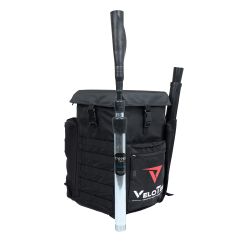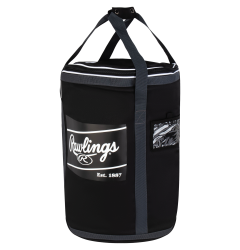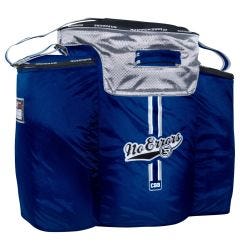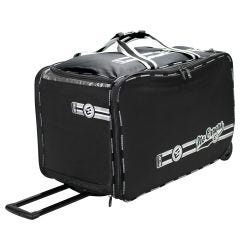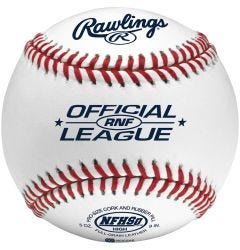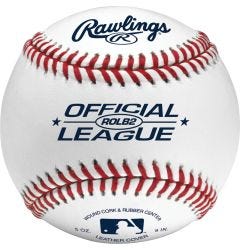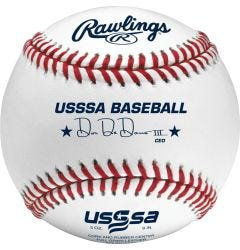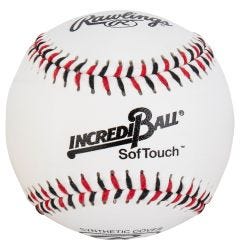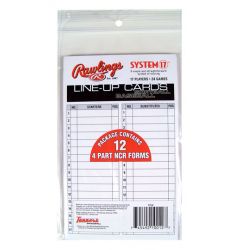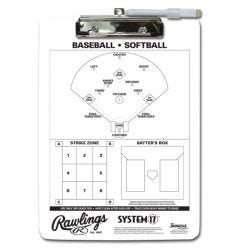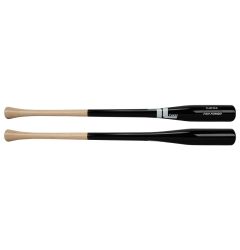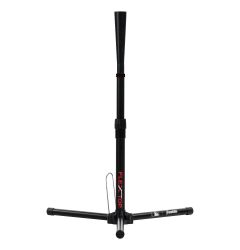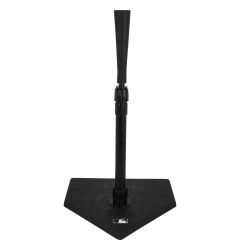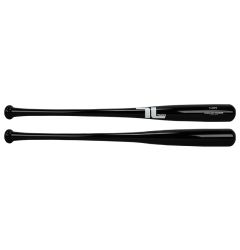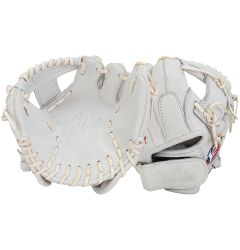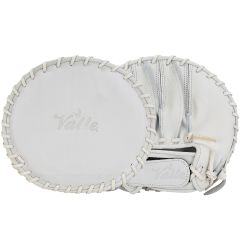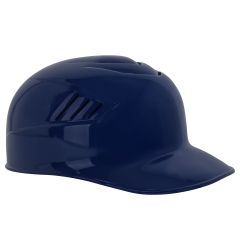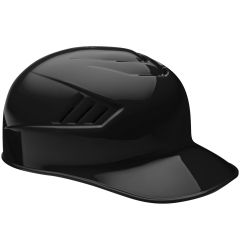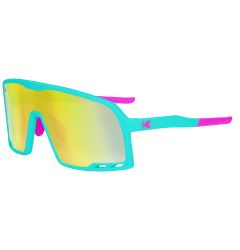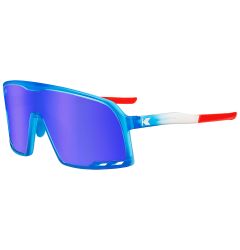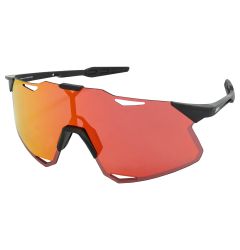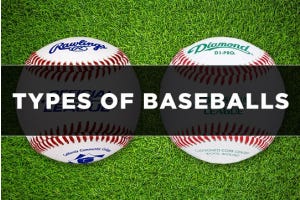Baseball Coach Gear Checklist: Essential Equipment & Must Haves
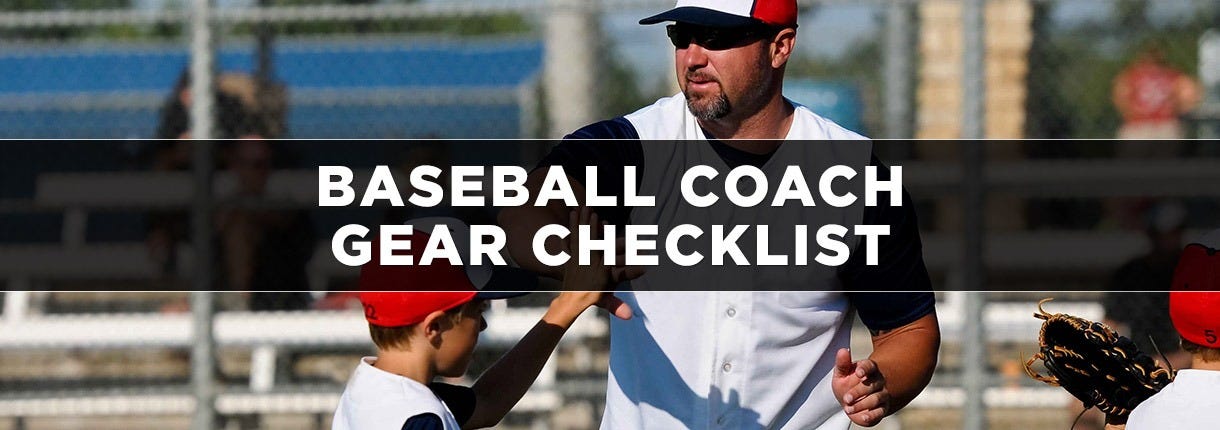
In the world of baseball, coaches are the unsung heroes who shape the future of the game. Whether it's Little League, high school, or the major leagues, these mentors play a pivotal role in developing players' skills, instilling values, and nurturing a love for the sport. But, have you ever stopped to consider the critical importance of proper gear for baseball coaches? Just as players rely on their bats, gloves, and uniforms, coaches need the right equipment to excel in their roles. In this article, we'll delve into the significance of coaches in the game and explore how having the right gear can make all the difference.
Prepare for the season ahead with our downloadable Baseball Coach Gear Checklist, ensuring you have all the essential equipment to lead your team to success on the diamond!
In this article, we’ll cover:
Coaching Bag
As a baseball coach, you already have your hands full during practice and games, so choosing the right coaching bag can help alleviate some stress. Choosing the right bag that can keep you organized contributes to having a positive coaching experience. An organized and prepared coach sets an example for the rest of the team. When players know that their coach is prepared, they pay more attention and practice can be more productive.
Coaching bags need to be durable, spacious, and convenient. They also need to have plenty of features to accommodate the needs of the coach. The best coaching bags have multiple compartments that allow the coach to locate items when needed easily. They have comfortable straps for the long walk to and from the field. They are water-resistant to protect equipment during rainouts. They are durable and feature reinforced stitching, robust zippers, and sturdy handles.
A coach needs to bring a lot of equipment to the field every day. This includes baseballs, a glove, a fungo bat, a scorebook and pens, lineup cards, a first aid kit, sunscreen, a uniform, water, a clipboard, and even a rule book. The amount of equipment can quickly add up! Get a coaching bag to stay organized as you lead your team on the field.
Baseballs
The coach is often responsible for providing the baseballs used in practices and games. It is important to have enough baseballs for everyone to play catch, conduct infield drills, and batting practice. When deciding what baseballs to bring, try to match the baseballs used in practice to those used in the games. There are many different types of baseballs based on the age and league of the players. For more information, consult our Guide to Different Types of Baseballs.
Additionally, consider the bucket you will transport the baseballs in. Some buckets feature a padded lid to serve as a seat. This can be extremely helpful for portable seating while conducting practices or coaching games.
Clipboard, Scorebook, and Lineup Card
Time is valuable in baseball practices and games. Staying organized helps you stay productive on the field and a great way to stay organized is by using a clipboard, scorebook, and lineup card. During practices, a clipboard can display a practice plan to ensure everyone knows what is going on. During games, a scorebook helps the coach keep track of the score, player statistics, and trends and patterns. These pieces of information help the coach in their decision-making process. Finally, the lineup card is used to communicate to the players the batting lineup and defensive rotation. Displaying a lineup card saves valuable time as the coach does not have to read the lineup every inning.
Fungo Bat
A fungo bat is a specialized, lightweight bat designed for coaches to hit infield and outfield practice to their players. They are normally longer and lighter than regular baseball bats giving the coach better control when hitting. Because they are long and light, the coach does not have to swing as hard when hitting, reducing fatigue and allowing them to hit more without getting tired. Fungo bats are instrumental in facilitating skill development for both infielders and outfielders. Coaches can use them to simulate challenging plays, such as difficult hops, long throws, and deep fly balls, providing players with the opportunity to enhance their fielding techniques and overall game readiness. Most importantly, using fungo bats simulates the spin and trajectory the ball will have off the bat in the game. This repetition is vital as it creates muscle memory and improves players' skills.
Batting Tee
A batting tee is a great tool coaches can use to break down the fundamentals of a player’s swing. They allow the player to focus on developing fundamental hitting skills, such as proper swing mechanics, hand-eye coordination, and stance. Coaches can use the tee to help players refine their technique and make necessary adjustments to their swing. The tee also allows for consistent repetition to build muscle memory.
Hitting Training Aids
Training aids allow the coach to help the player work on a specific aspect of their swing. Examples of training aids include weighted balls, training bats, sensors, and other equipment. Training aids help the player develop proper swing mechanics, bat speed, strength, and muscle memory. When deciding what hitting training aids would be beneficial to your team, consider the needs of your players. For example, if your team needs to improve bat speed, consider training aids like weighted balls and bats to help build quickness through the hitting zone. To view our selection of hitting training aids, click here.
Fielding Training Aids
Fielding training aids allow the coach to help players develop their defensive skills, improve their agility, and enhance their overall fielding technique. Examples of fielding training aids include training gloves, footwork ladders and cones, and reaction balls. These training aids promote developing proper fielding fundamentals. Training gloves can teach the importance of using two hands while cones can help team quickness and athleticism. When deciding what fielding training aids would be best for your team, think about what aspects of fielding your team can improve on. To view our selection of fielding training aids, click here.
Protective Helmet
Depending on the level you are coaching, wearing a protective helmet might be required when coaching first and third base. These helmets keep the coach safe from foul balls. Traditionally, these helmets are called skull caps. They differ from batting helmets as they do not have ear flaps. To view our collection of skull caps, click here.
Sunglasses
Sunglasses protect from the sun’s glare and harmful UV rays. Sunglasses with appropriate lenses help reduce the sun's glare, allowing coaches to maintain clear visibility of the field, players, and the ball. High-quality sunglasses offer effective UV protection, shielding coaches' eyes from harmful ultraviolet rays. Coaches can be out on the field all day, and prolonged exposure to UV radiation can lead to various eye-related issues. Sunglasses with UV protection help mitigate these risks, ensuring coaches maintain healthy vision and eye safety.
Sunscreen and Bug Spray
Sunscreen and bug spray can make your time coaching more enjoyable. Coaches often spend many hours in the sun, so choosing a sunscreen with a high SPF can protect them from burns. It also reduces the risk of sun-related skill damage. Similarly, bug spray can stop annoying bugs from interrupting your coaching. When getting a bug spray, look for a product containing DEET as these are more effective. Sunscreen and bug spray are two small things that can lead to a better coaching experience.
As the coach, you are the role model for your team. An organized and well-prepared coach sets the tone for the rest of the team. Practice time is valuable and you can make the most of it by following the checklist provided in this article. Having the right coaching equipment and a bag that keeps you organized means you can flow from one dill to the next, keeping your players focused. We invite you to check out the links to all the coaching gear we have available and explore how you can take your coaching and team to the next level.
Explore our collection of baseball coach accessories and visit our coach’s corner for all the essential coaching gear you need. Find out which type of coach you are in this detailed blog to improve your team’s game.
What gear does it take to be a baseball coach?
Some essential gear for a baseball coach include baseballs, a bat, and a glove. Above all, you need a love for baseball and a passion for helping others become successful!
What do baseball coaches actually do?
Baseball coaches are responsible for training and developing players' skills, strategizing for games, and providing guidance and support to their players. They oversee practices, manage in-game decisions, and offer feedback to help players reach their full potential both on and off the field.
How many coaches should a baseball team have?
While there is not a set number, it is helpful for a baseball to have at least two coaches working together to run practices and games smoothly.
What is a bench coach in baseball?
A bench coach is responsible for ensuring the players bat in the proper lineup and go to the correct position on defense. They can also help maintain order in the dugout and guide the players.




